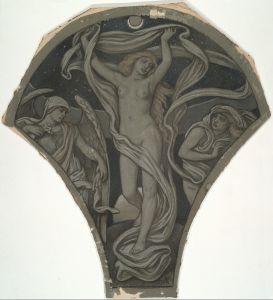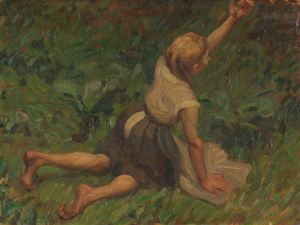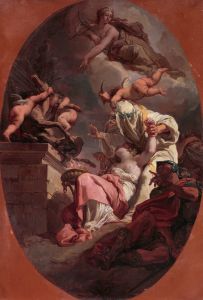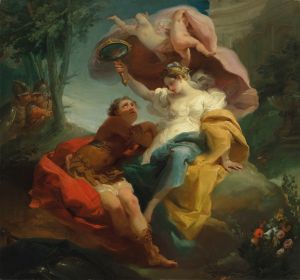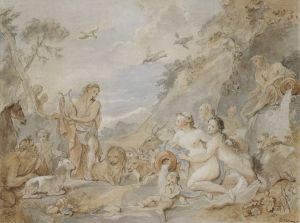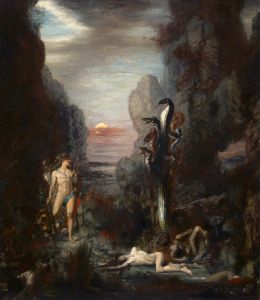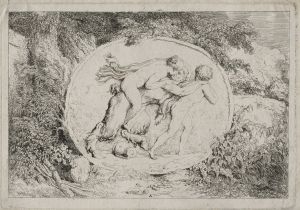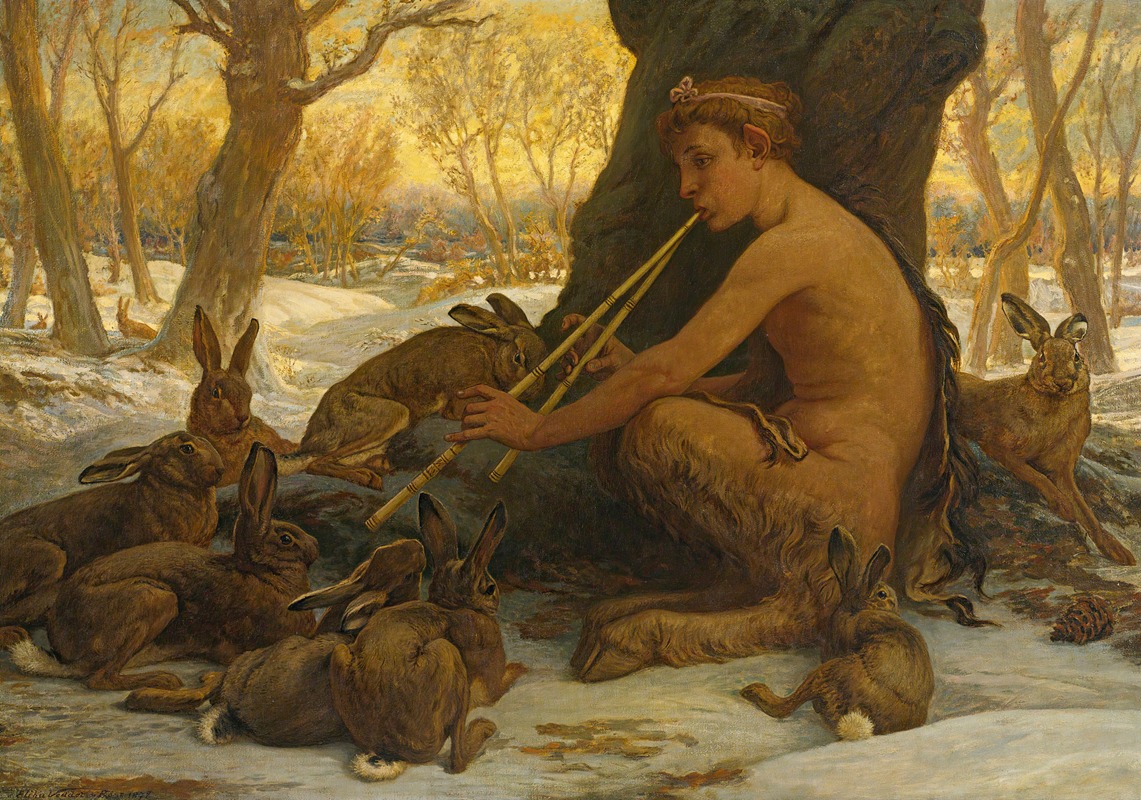
Young Marsyas
A hand-painted replica of Elihu Vedder’s masterpiece Young Marsyas, meticulously crafted by professional artists to capture the true essence of the original. Each piece is created with museum-quality canvas and rare mineral pigments, carefully painted by experienced artists with delicate brushstrokes and rich, layered colors to perfectly recreate the texture of the original artwork. Unlike machine-printed reproductions, this hand-painted version brings the painting to life, infused with the artist’s emotions and skill in every stroke. Whether for personal collection or home decoration, it instantly elevates the artistic atmosphere of any space.
"Young Marsyas" is a painting by the American artist Elihu Vedder (1836–1923), known for his contributions to the Symbolist movement and his distinctive style that often combined mythological themes with a dreamlike quality. The artwork depicts the figure of Marsyas, a satyr from Greek mythology, who is famously associated with the story of his musical contest with the god Apollo.
The painting portrays Marsyas in his youth, a subject that is less commonly explored in art compared to the more well-known narrative of his tragic fate. In Greek mythology, Marsyas is known for discovering the aulos, a double-piped wind instrument, and for challenging Apollo to a musical contest, which ultimately led to his punishment. However, Vedder's depiction focuses on Marsyas as a young figure, possibly emphasizing his innocence and vitality before the events of the myth unfold.
Elihu Vedder was an artist who spent much of his career in Italy, where he was influenced by the classical traditions and the Renaissance masters. His works often reflect a deep engagement with literature, mythology, and philosophical themes. "Young Marsyas" is consistent with Vedder's interest in exploring mythological subjects and imbuing them with a sense of introspection and emotional depth.
The painting is characterized by Vedder's meticulous attention to detail and his use of muted, earthy tones, which create a harmonious and contemplative atmosphere. The figure of Marsyas is rendered with a sense of realism, yet there is an ethereal quality to the composition that aligns with Vedder's Symbolist tendencies. The background and setting of the painting suggest a natural environment, which is fitting given Marsyas's association with the wilderness as a satyr.
"Young Marsyas" is part of Vedder's broader body of work that often sought to reinterpret classical myths through a personal and modern lens. While the exact date of the painting's creation is not widely documented, it is representative of Vedder's mature style and his fascination with mythological storytelling.
The painting is held in a private collection, and its exhibition history is not extensively recorded. As with many of Vedder's works, "Young Marsyas" invites viewers to reflect on the deeper meanings and emotions embedded in mythological narratives, offering a timeless exploration of human creativity and the complexities of fate.










